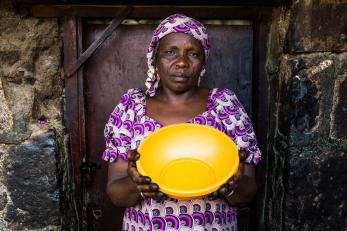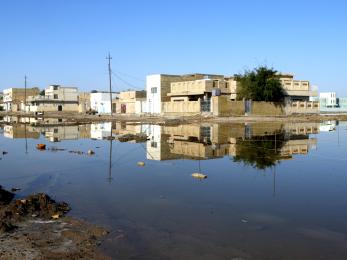The Untold Crisis of the Lake Chad Basin

The Lake Chad Basin is suffering from one of the world’s largest overlooked humanitarian crises today. Almost half the population living in areas affected by Boko Haram violence – 9.2 million people - are in need of humanitarian assistance. According to multiple international charities, 2.6 million people have been forced to flee their homes, at least 65,000 people in the region are experiencing famine-like conditions and 6.4 million people are facing crisis or emergency levels of food insecurity.
Read the untold crisis of the Lake Chad Basin brief ▸
Mercy Corps is deeply concerned about the suffering in the areas of Cameroon, Chad, Niger and Nigeria bordering Lake Chad. As access to previously inaccessible communities increases, we are uncovering untold horrors of famine, malnutrition, and widespread gender based violence. The level of trauma will take years to mend. Suffering from the conflict has been compounded by numerous other factors: decades of poor governance; extreme poverty; mismanagement of natural resources and climate change.
To promote stability in the region and respond to urgent humanitarian needs, we urge international donors and governments in the region to respond with both short and long-term solutions.
Recommendations:
- Dramatically and urgently increasing humanitarian investments to combat malnutrition and food insecurity, address shelter and protection needs, and ensure safe access to water and sanitation. Increase direct funding to the humanitarian actors best placed to respond effectively.
- Beginning, even in the midst of humanitarian response, to address the root causes of violence and poverty in the region, by increasing long-term investments that promote positive state-citizen relationships, addressing drivers of violence, and building community resilience to violent extremism.
- Paying particular attention to increasing the safety, opportunities, and personal agency of adolescent boys and girls in the region who have grown up in conflict and suffering.

